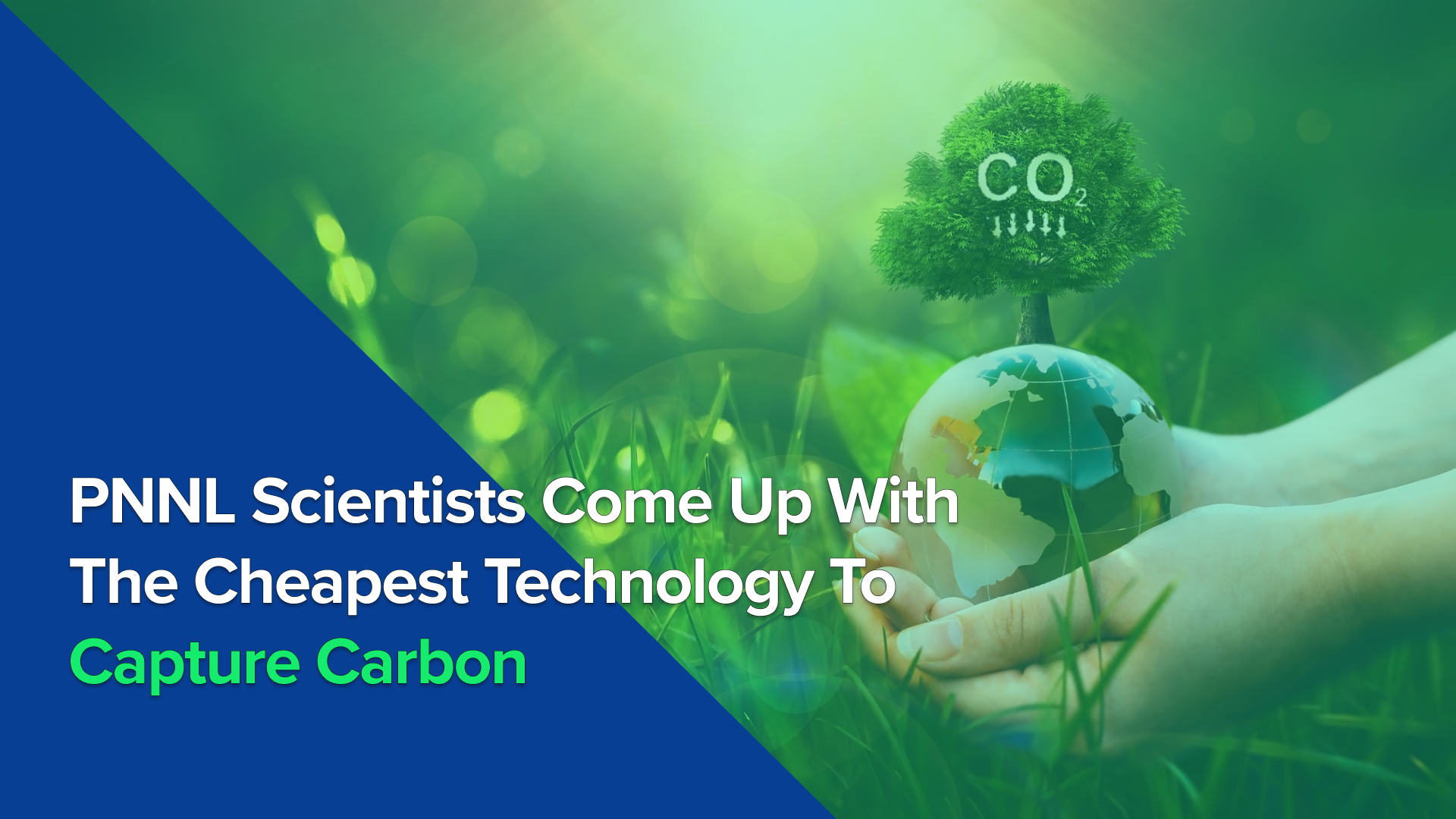According to a recent publication in the journal, Advanced Energy Materials, the scientists at the Department of Energy's Pacific Northwest National Laboratory (PNNL) have accomplished a new feat in their attempts to make carbon capture inexpensive and more widely available. With every Carbon Dioxide (CO2) molecule that enters the Earth's atmosphere, the need for technology that can capture, remove and recycle it, is ever increasing. PNNL has developed a novel technology that effectively gathers CO2 at the lowest cost to date and transforms it into methanol.
Scientists at the PNNL have created the most affordable carbon capture and conversion system to date. The system takes flue gas from power plants and strips out CO2 using a patented PNNL developed solvent. The solvent then carries the captured CO2 to a reactor, where it is converted into methanol, one of the most widely produced industrial chemicals on earth. This continuous process skips multiple expensive steps to release, compress and purify CO2 This process eliminates the need for two separate plants for shipping and piping CO2. PNNL has significantly reduced the costs to make renewable methanol.
While making the process simple to understand, PNNL chemist David Heldebrant said, “Instead of extracting oil from the ground to make these chemicals, we're trying to do it from CO2 captured from the atmosphere or from coal plants, so it can be reconstituted into useful things. You're keeping carbon alive, so to speak, so it's not just ‘pull it out of the ground, use it once, and throw it away.’ We're trying to recycle the CO2, much like we try to recycle other things like glass, aluminium and plastics.”
One of the most important factors in reducing global warming is catching CO2 before it is released into the atmosphere. Scientists at PNNL believe methanol can offer that inducement. It has a wide range of applications as a fuel and is also a vital component in plastics, paint, building supplies and automobile parts. For industrial entities, converting CO2 into products like methanol offers a way to capture carbon and transform it into useful, commercial materials.
Although the technology is not yet ready for commercial deployment, it is an essential step in mitigating climate change. The system can provide incentives for the largest emitters to adopt carbon capture technology. The high cost of commercial capture technology is a longstanding barrier to its widespread use. Therefore, creating cost-effective carbon capture technology is crucial in pacing down global warming.
The Intergovernmental Panel on Climate Change (IPCC) has also named carbon capture and storage as a necessary element in achieving net zero emissions, especially in sectors that are difficult to decarbonise, like steel and chemical production. Therefore, reducing industrial emissions will involve using materials more efficiently, reusing & recycling products, and minimising waste.
In conclusion, the new system developed by PNNL scientists is a crucial step in mitigating climate change. The approach encourages the biggest emitters to embrace carbon capture equipment and lowers emissions by developing cost-effective carbon capture technology. Furthermore, the system encourages sustainability and circularity, which are crucial for reducing climate change, by transforming CO2 into valuable compounds like methanol.


